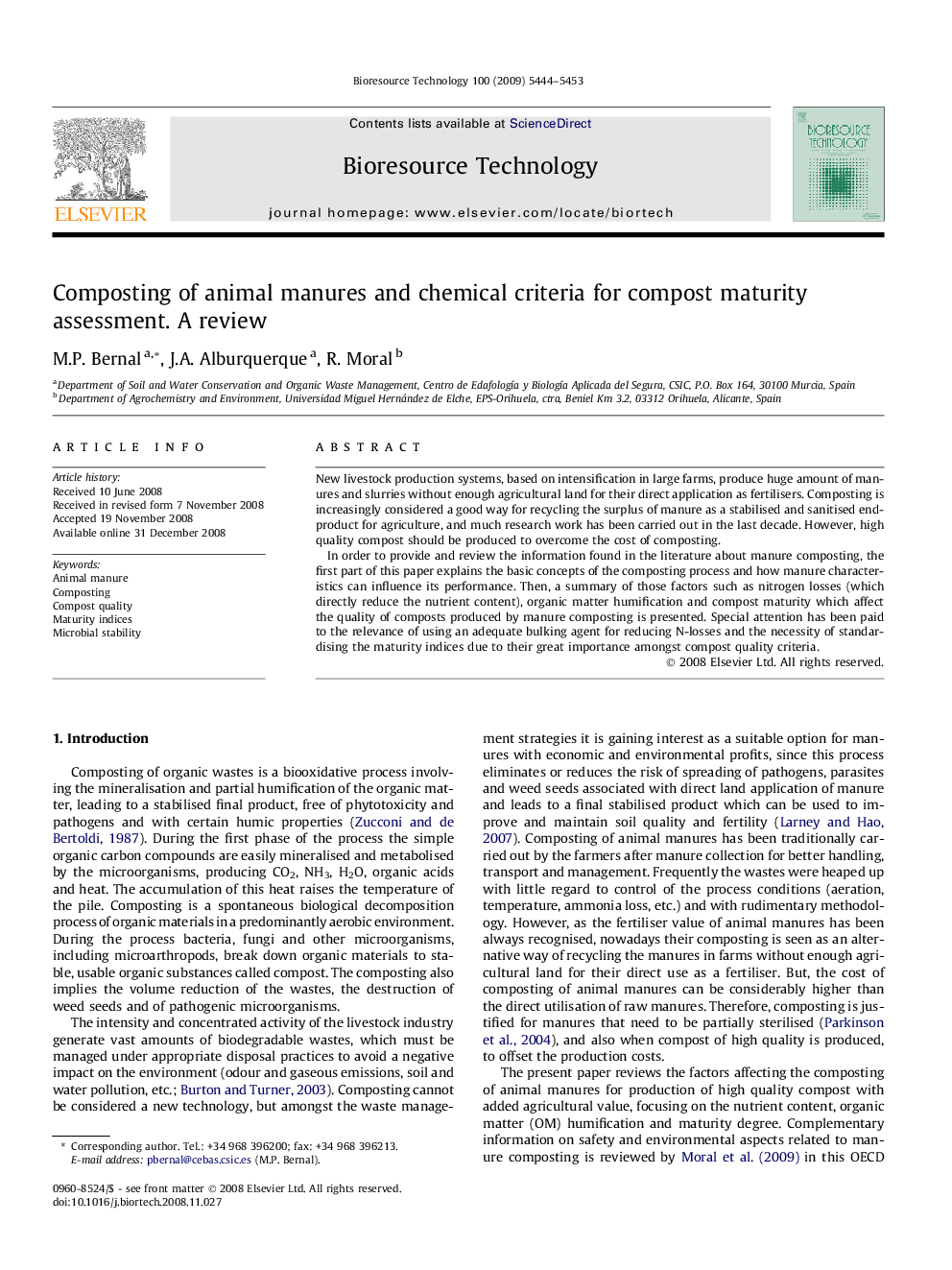| Article ID | Journal | Published Year | Pages | File Type |
|---|---|---|---|---|
| 683991 | Bioresource Technology | 2009 | 10 Pages |
New livestock production systems, based on intensification in large farms, produce huge amount of manures and slurries without enough agricultural land for their direct application as fertilisers. Composting is increasingly considered a good way for recycling the surplus of manure as a stabilised and sanitised end-product for agriculture, and much research work has been carried out in the last decade. However, high quality compost should be produced to overcome the cost of composting.In order to provide and review the information found in the literature about manure composting, the first part of this paper explains the basic concepts of the composting process and how manure characteristics can influence its performance. Then, a summary of those factors such as nitrogen losses (which directly reduce the nutrient content), organic matter humification and compost maturity which affect the quality of composts produced by manure composting is presented. Special attention has been paid to the relevance of using an adequate bulking agent for reducing N-losses and the necessity of standardising the maturity indices due to their great importance amongst compost quality criteria.
